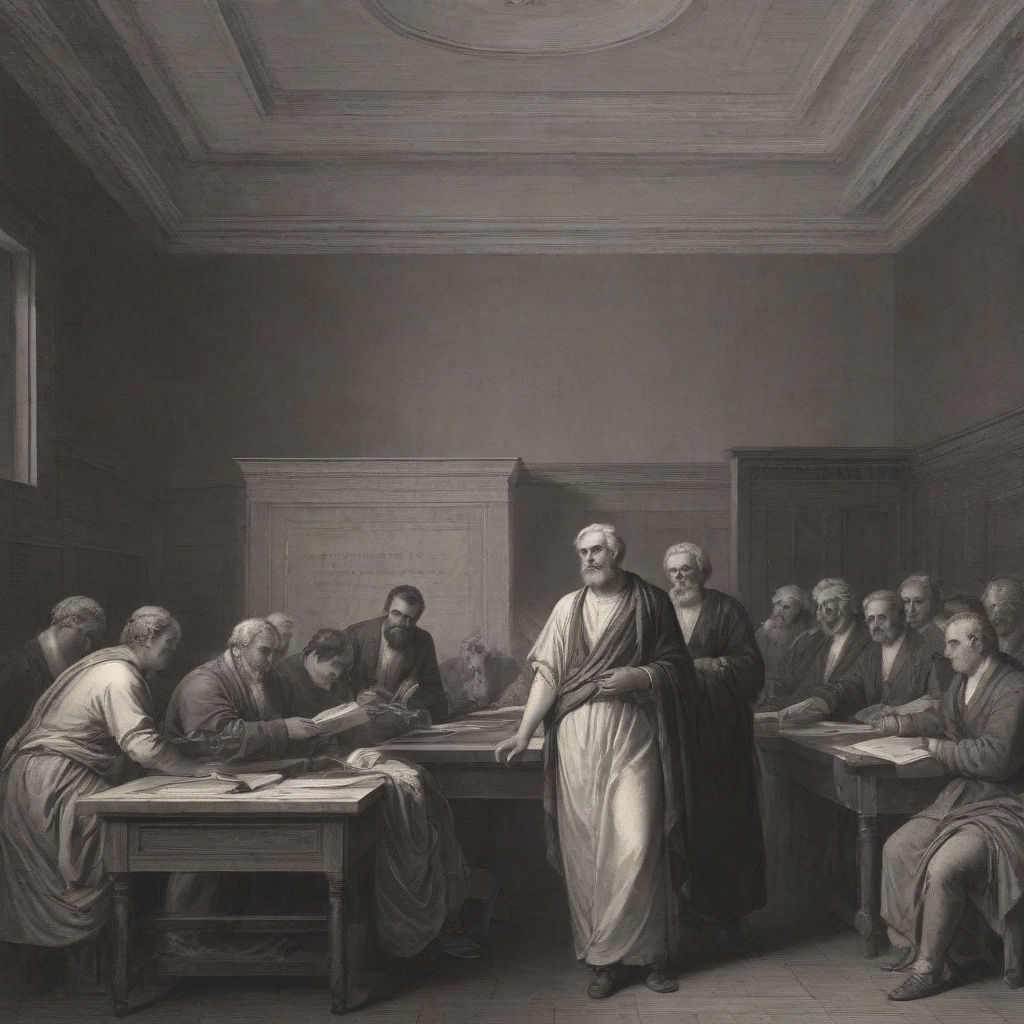
Utilitarianism, a moral and political philosophy emphasizing the greatest good for the greatest number. It covers the history and key concepts of Utilitarianism, as well as its influence on fields such as ethics, economics, and political science. Get ready to explore this influential and thought-provoking approach to morality and social welfare.
Who is considered the father of Utilitarianism?
Immanuel Kant
John Stuart Mill
Jeremy Bentham
Friedrich Nietzsche
Utilitarianism considers what as the ultimate goal of human action?
Moral duty
Personal happiness
The common good
Individual pleasure
According to Utilitarianism, how should an action be evaluated?
Based on its intention
Based on its consequences
Based on its moral rules
Based on its tradition
What is the difference between act and rule utilitarianism?
Act utilitarianism focuses on individual actions, while rule utilitarianism focuses on moral rules.
Act utilitarianism focuses on moral rules, while rule utilitarianism focuses on individual actions.
Act utilitarianism focuses on tradition, while rule utilitarianism focuses on moral rules.
Act utilitarianism focuses on consequences, while rule utilitarianism focuses on moral rules.
What is the problem of the tyranny of the majority in Utilitarianism?
The majority oppresses the minority
The minority oppresses the majority
The majority makes decisions that harm the minority
The minority makes decisions that harm the majority
What is the difference between hedonistic and preference Utilitarianism?
Hedonistic Utilitarianism focuses on pleasure, while preference Utilitarianism focuses on desires.
Hedonistic Utilitarianism focuses on desires, while preference Utilitarianism focuses on pleasure.
Hedonistic Utilitarianism focuses on moral rules, while preference Utilitarianism focuses on pleasure.
Hedonistic Utilitarianism focuses on personal happiness, while preference Utilitarianism focuses on pleasure.
How does Utilitarianism handle conflicts between individual happiness and the common good?
It prioritizes individual happiness
It prioritizes the common good
It finds a balance between the two
It disregards individual happiness
What is the difference between Utilitarianism and Deontology?
Utilitarianism focuses on consequences, while Deontology focuses on moral rules.
Utilitarianism focuses on personal happiness, while Deontology focuses on moral rules.
Utilitarianism focuses on the common good, while Deontology focuses on moral rules.
Utilitarianism focuses on individual pleasure, while Deontology focuses on moral rules.
What is the criticism of Utilitarianism regarding moral absolutism?
It lacks a clear moral code
It is too rigid in its moral rules
It is too flexible in its moral rules
It prioritizes personal happiness over the common good
What is the role of justice in Utilitarianism?
It is a secondary concern
It is a primary concern
It is not considered at all
It is considered only in extreme cases
Can Utilitarianism justify punishment?
Yes, if it leads to the greatest happiness for the greatest number
No, punishment is always unjust
Yes, if it is proportional to the crime
No, punishment is never justified
What is the criticism of Utilitarianism regarding the welfare of animals?
It neglects the welfare of animals
It prioritizes the welfare of animals over humans
It considers the welfare of animals equal to the welfare of humans
It only considers the welfare of animals in extreme cases
Can Utilitarianism handle moral dilemmas?
Yes, it provides a clear solution
No, it is unable to handle moral dilemmas
Yes, it prioritizes the common good
No, it always leads to a moral compromise
Can Utilitarianism be applied in a global context?
No, it only applies to a particular community
Yes, it can be applied in a global context
No, it only applies to individuals
Yes, it can be adapted to a global context
Very impressive!
Congratulations on your excellent score in the Utilitarianism quiz! Your knowledge of this philosophical approach and its focus on maximizing happiness and minimizing suffering demonstrates your practical mindset and strong sense of ethics. Well done!
There is still room for improvement!
It's okay if you didn't do as well as you hoped on this quiz. It's important to remember that everyone has room for improvement and it's a great opportunity to learn something new. Take some time to study the material and try again. With practice and dedication, you'll be able to do better next time. Don't give up!














